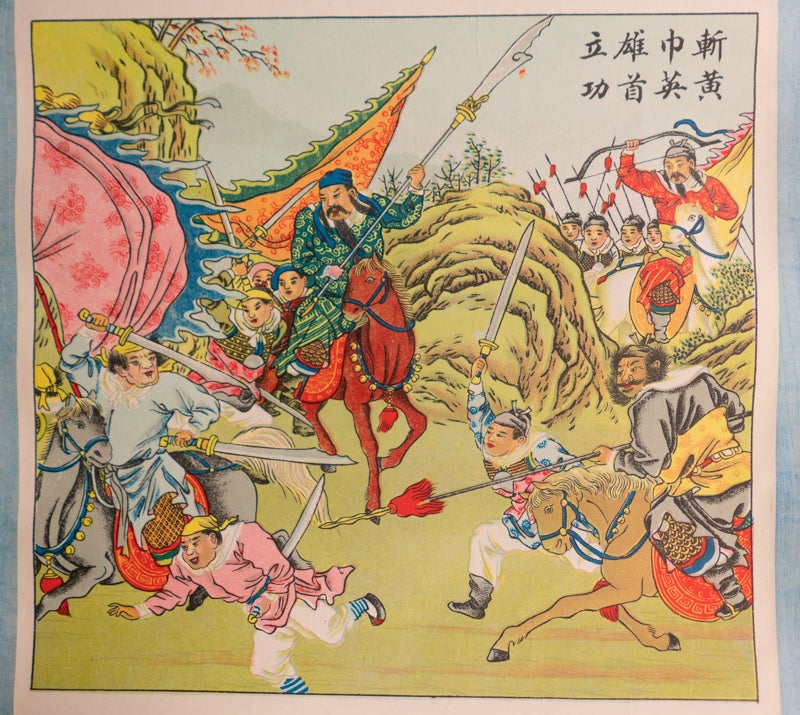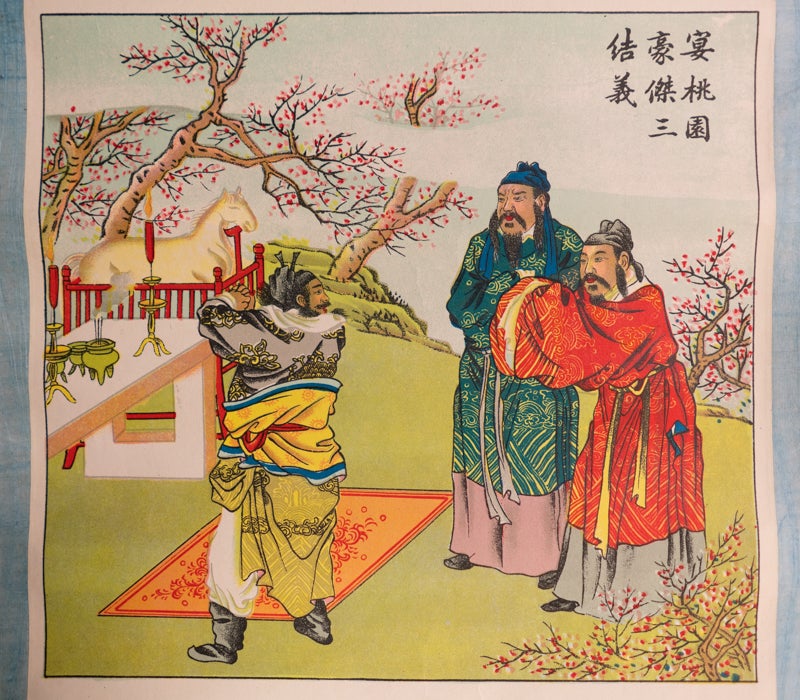
The Jesuits at Woodstock College were trained in academic and spiritual disciplines. This was done in the spirit of Ad majorem Dei gloriam, for the greater glory of God. Their training in languages, world literatures, and global civilizations enabled them to live in different geographic locations and among diverse cultures and people. Thus, their work, or “missions”, took them all over the world where they contributed to, but most often gained from, the societies they inhabited.
In the 20th century, Woodstock Jesuits were sent to China, following a long tradition of Jesuits in China which began in 1582 with Matteo Ricci. While there, they not only taught and learned from the Chinese people but they consumed and enjoyed their traditions.
As any traveler can testify, souvenirs are important material markers of time spent abroad. Among the keep-sakes the Woodstock Jesuits brought back from their work in China were a group of prints depicting scenes from the The Three Kingdoms, the historical novel attributed to Luo Guanzhong (ca. 1330-1400) and set in the 2nd century at the close of the Latter or Eastern Han Dynasty.* The story centers around three characters, Liu Bei, Guan Yu, and Zhang Fei, who make an oath to become brothers and to defend the Han Empire in the Peach Garden.
The famous first line of the novel is: the empire, long divided, must unite; long united, must divide. In the context of the prints obtained by the Woodstock Jesuits one can’t help but contemplate how closely it echoes the history of the Jesuits – from its extraordinary beginning and flourishing during 16th and 17th centuries, to its suppression and expulsion from Europe in 1773, to its restoration in 1814.
Post by Amy Phillips, Rare Materials Cataloger for Woodstock Library
* Many thanks to our colleague, Ding Ye, for helping us identify these prints.

